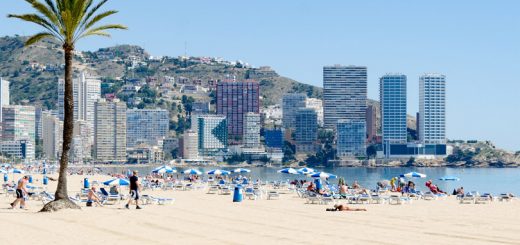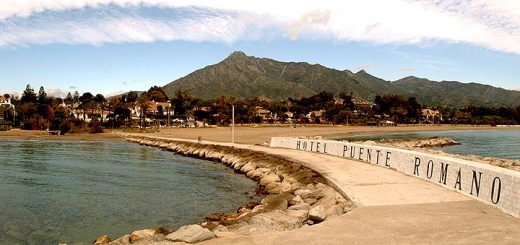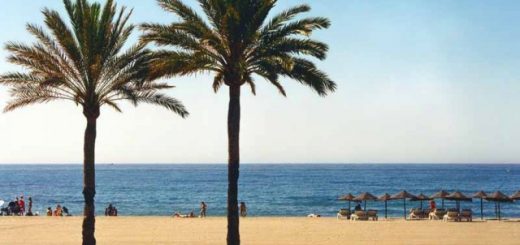
The importance of a lawyer when buying a house in Spain
Before buying a property in Spain it is recommended that you hire a lawyer who represents you in the purchase. The primary role of the lawyer is to ensure that the purchase can take place under safe conditions. In this way he ensures the right conditions in the contract and checks the property before the purchase is made. This protects the buyer against fraudulent sellers and reduces the chance of unexpected costs after the purchase of the house.
The sooner you engage a lawyer in Spain to guide the buying process the better. After all, the lawyer can immediately inform the selling party what is important to you as a client. It is always recommended to hire a lawyer before you sign a (reservation) agreement.
What can you do to buy a property in Spain.
When you contact a lawyer, he will ask you a number of questions to see in which phase of the purchase process you are. To buy a property you will first need a NIE. You can apply for the NIE at the consulate of Spain
in your home country. Make an appointment on time because the waiting time sometimes increases to 8 weeks. In addition, you will have to wait 2 or 3 weeks before you receive the NIE at your home address. You can also apply for a NIE at an oficina de extranjería in Spain. This is a local police station and they can often attend you a lot faster.
In addition to a NIE, you need a bank account with a Spanish bank. Houses in Spain are paid at the notary with a cheque. You do not need a NIE to open a Spanish bank account for non-residents.
An expert lawyer can help you to obtain these things if necessary. In addition, he will ask you whether you have a specific property in mind and whether you have already received documentation from the selling company. The most important document in this respect is the nota simple, which is an abridged version of the escrtitura de la propiedad containing important information about the property.
Check the nota simple
When studying the nota simple the lawyer looks at who the seller is and, among other things, whether there are charges such as a mortgage or distraints on the property. If the dwelling has multiple owners, they will all have to agree to the sale of the house.
In Spain, a Private Purchase Contract is almost always signed when buying a property. The buyer will make a down payment of about 10 percent. It is therefore important that there is no distraints to the house. The seller is not allowed to sell the property in that case. The recovery of a down payment can be difficult in that case and in most cases will even require litigation.
Another document that the lawyer investigates is the Catastro. The Catastro is a register of property to calculate how much property tax is levied by the Spanish tax authorities
Reservation contract.
In some cases it may be wise to reserve the property with a reservation agreement. In that case the buyer pays the seller an amount of 2 to 3% of the sales price (minimum 3000 Euros) with which the seller pledges to remove the property from the market. This does not mean that the seller is not allowed to sell the dwelling to another person. The seller is limited only to stop advertising the property. It is common for buyers to think that there is no lawyer is required for the signing of a reservation contract because it is still concerns a fairly low amount. However, agreements are already made in the reservation contract that will be hard to change later without the risk of losing the reservation amount.
Further checks on the property.
For years, homes and other types of buildings (such as verandas and swimming pools) have been built in Spain without the proper permit being present. This has ensured that there are many illegal constructed buildings in Spain of which many have a function of dwellings. In Andalusia and some other autonomous communities this can now be solved by the means of an AFO procedure.
When studying the nota simple, a lawyer will verify whether the number of meters are in correspondence with what is mentioned in the Catastro. If there are differences between the registers, the seller will be asked to clarify this. In addition, it may be wise in some cases to measure the property and see if it matches what is stated in the property registers. An architect can possibly draw up a technical report to inform the buyer about the technical state of the building.
Decision about the correct certificates
In order for a property to be concerned a dwelling in Spain it must possess a number of certificates. In the case of new homes, this is the licencia de primera ocupación and in existing houses the
cédula de habitabilidad. These certificates are required to change the utilities (such as electricity and water) to the name of the buyer and guarantee that the building was constructed according to municipal laws and building permits.
Drafting and / or checking the contracts
Before going to the notary, the buyer and the seller will sign a Private Purchase Agreement. This contract is also called the contrato de arras or contrato de compraventa in Spanish. It is a private contract where parties agree certain things (such as the price, the way the house is delivered to the buyer, the amount of the down payment etc.).
As mentioned before, the down payment is usually about 10 percent of the purchase price. The parties often include a penalty clause, which states that if one of the parties decides to withdraw from the contract, he or she will owe the other party an amount equal to the down payment.
The contrato de arras
is perhaps one of the most important contracts. The conditions which are incorporated in the contract are different for every property. We recommend to always contact a
qualified real estate lawyer in Spain.
Signs of notarial deed
After the provisional purchase agreement is signed the buyer and seller can go to the notary. Prior to the signing, the seller will have to apply to deliver the property to the buyer as agreed in the Private Purchase Agreement. On the other hand the buyer will have to have everything in order such as his NIE, Spanish bankaccount and financing. After signing at the notary, the buyer receives the legal ownership of the property. This means, among other things, that he or she is also registered as an owner in the Registro de la propiedad.



















